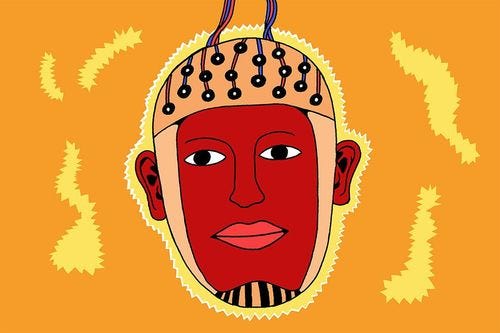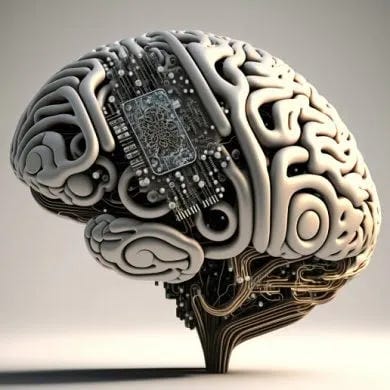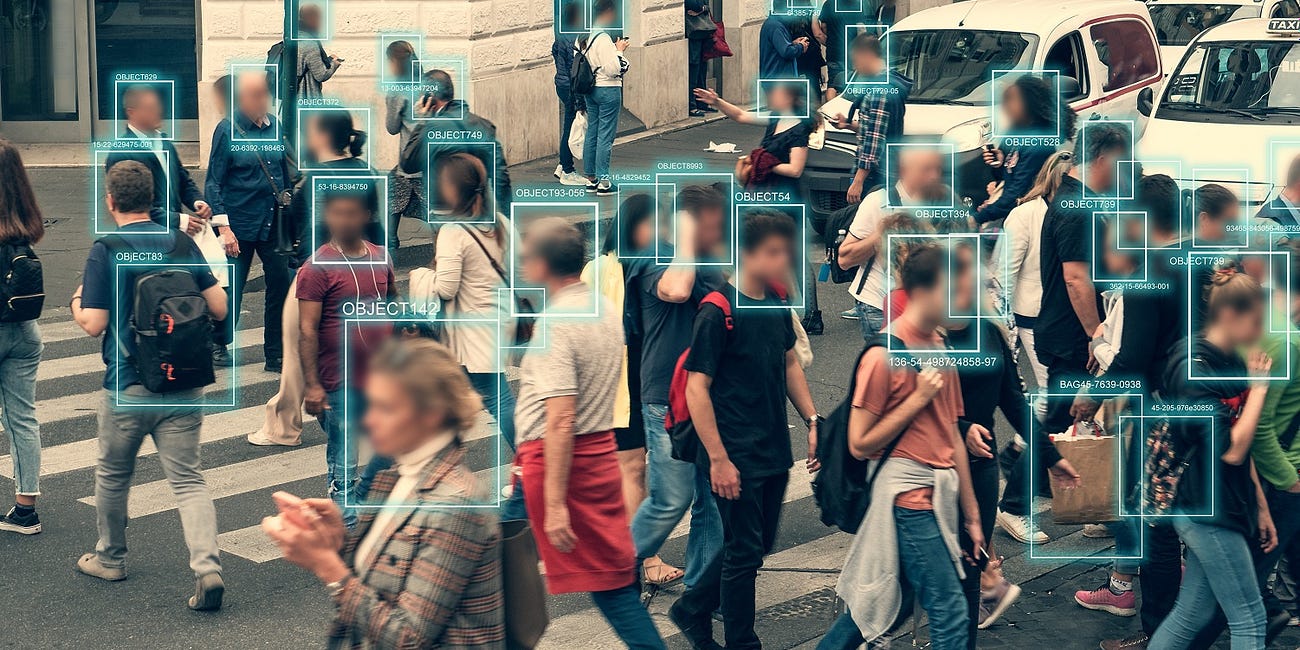Boom: Declaration Of The InterAmerican Juridical Committee On Neuroscience, NeuroTechnologies And Human Rights: New Legal Challenges For The Americas
Use of such neurotechnologies can break the last natural frontier of a person, their mental privacy, & thus affect the identity & dignity of each human being. - The Inter-American Juridical Committee
The Inter-American Juridical Committee has a DAMN GOOD IDEA that we should probably get our acts together and help with, so we are bringing their important Declaration Of The InterAmerican Juridical Committee On Neuroscience, NeuroTechnologies And Human Rights: New Legal Challenges For The Americas to your attention:
Our Substack is free - if you want to support our work, we can use your help! Please donate to our important lawsuit donation drive to Stop Crimes Against Humanity/Stop Covid Vaccines NOW!
The Inter-American Juridical Committee would like to draw the attention of States to these recommendations, the private sector, academia, and the scientific community, to urge them to participate in the process of adopting concrete measures that allow these innovations to contribute to the well-being of individuals and communities.
What’s the problem or gap with NuroTechnologies and human rights?
The absence of specific regulations on neurotechnologies, as well as their scope and impact, generates a risk of illegitimate manipulation of emotions, feelings, and decisions by those who produce such technologies and/or control the large AI systems that decode neural information. Likewise, the use of such neurotechnologies can break the last natural frontier of a person, their mental privacy, and thus affect the identity and dignity of each human being. - The Inter-American Juridical Committee
Learn the facts. The technology is FAR more advanced than people realize. How will it affect human rights?
We asked Klaus exactly this question last year, but the courts wont make him answer!!!
OPEN LETTER & QUESTIONS Sent To Klaus Schwab & WEF. RE: DAVOS "Welcoming Remarks & Special Address" Calling For Inclusiveness.
Klaus Schwab Sued For Answers About 4th Industrial Revolution. Judge Just Ruled
Enough about Klaus, back to the story.
The Declaration Is Below & Needed!
“it is a matter of concern that there are no standards to ensure the transparency of those technologies and to enable a public debate on their design and risks”
Let’s learn and discuss the international declaration about the global necessity of restraining NeuroTechnologies, because they really DO indeed include mind reading and AI tech.
According to WEF adviser Harari these technologies and large data collection capabilities essentially means: “FREE WILL? THATS OVER!!!” It is important to note that Harari’s website explains: “History began when humans invented gods, and will end when humans become gods.”
Looks like The Inter-American Juridical Committee is trying to crack down and help us all get some eyes on the necessity of protecting humanity from NeuroTechnologies that will erode human rights and destroy dignity of man by stealing our free will.
By The Inter-American Juridical Committee
https://www.oas.org/en/sla/iajc/docs/CJI-DEC_01_XCIX-O-21_ENG.pdf
99th REGULAR SESSION OEA/Ser. Q August 2 to 11, 2021 CJI/DEC. 01 (XCIX-O/21) Virtual session August 11 2021
Original: Spanish
CJI/DEC. 01 (XCIX-O/21)
Declaration Of The InterAmerican Juridical Committee On Neuroscience, NeuroTechnologies And Human Rights: New Legal Challenges For The Americas
THE INTER-AMERICAN JURIDICAL COMMITTEE, BEARING IN MIND that the progress in neuroscience and the development of neurotechnologies raise important ethical and legal concerns on the final impacts on fundamental principles, rights and freedoms such as human dignity, free development of personality, identity and autonomy, the right to privacy and intimacy, freedom of thought and expression, physical, mental and psychological integrity, the enjoyment of the highest attainable standard of physical and mental health and access to remedies, equality before the law, as well as judicial protection in case of harm, among others;
RECALLING recent international initiatives on the ethical, social, and human-rights challenges of neuroscience and neurotechnologies such as the “Recommendation on Responsible Innovation in Neurotechnology” adopted in December 2019 by the Organisation for Economic Co-operation and Development (OECD) and the Preliminary Draft Report of the International Bioethics Committee of the United Nations Educational, Scientific and Cultural Organization (UNESCO) on Ethical Issues of Neurotechnology published in September 2020; and the national legislative initiatives on the subject in Chile and Brazil;
CONSIDERING that the Universal Declaration of Human Rights recognizes the right to the free development of the personality, as well as enshrining equality and human freedom; the fulfillment of economic, social and cultural rights; and education as a means of development of the human personality;
EMPHASIZING that the Charter of the Organization of American States (OAS) expresses that scientific and technological development should strengthen the fundamental rights of people, seeking the overall improvement of the human person and as the foundation of democracy, social justice and progress; and that the Social Charter of the Americas approved by the OAS establishes that scientific and technological development should help to improve living standards of people and achieve their integral development, for which reason it is necessary to take steps to ensure that the application of innovations benefits everyone;
RECALLING that, in accordance with the American Convention on Human Rights (Pact of San José), States have the obligation to respect the rights and freedoms recognized therein and ensure the free and full exercise thereof to all persons, and to adopt measures, both internally and through international cooperation, with a view to achieving progressively the full realization of the rights that derive from the economic, social, educational, scientific, and cultural standards set forth in the Charter of the Organization of American States (OAS); 2
CONSIDERING that the Additional Protocol to the American Convention in the Area of Economic, Social and Cultural Rights (Protocol of San Salvador) recognizes the right of every person to enjoy the benefits of scientific and technological progress;
ADOPTS at the ninety-ninth regular session held from August 2 to 11, 2021, the following “Declaration on Neuroscience, Neurotechnologies, and Human Rights: New Legal Challenges for the Americas:”
1. Conditioning of personality and loss of autonomy
The inter-American legal framework protects the autonomy of individuals, defined as the capacity to develop one's own personality and aspirations, determine one's own identity, exercise control over one’s bodily functions and decisions, and establish interpersonal relationships. The personal liberty protected in the inter-American instruments includes the right of every person to organize, in accordance with the law, their personal and social life according to their own choices and convictions. The headlong advance of neurotechnologies, especially those for non-medical use, brings us face to face with the possibility that this autonomy may be put at risk by indiscriminate and unregulated use of technological applications or devices.
The absence of specific regulations on neurotechnologies, as well as their scope and impact, generates a risk of illegitimate manipulation of emotions, feelings, and decisions by those who produce such technologies and/or control the large AI systems that decode neural information. Likewise, the use of such neurotechnologies can break the last natural frontier of a person, their mental privacy, and thus affect the identity and dignity of each human being.
2. Legitimate interventions in the areas of health and physical and mental integrity Health has been understood as a state of complete physical, mental and social well-being and not merely the absence of disease. In the inter-American legal framework, it has often been associated with integrity of the person, though that also enjoys separate recognition. In turn, integrity of the person includes both the physical and mental integrity of individuals. Among the immediately enforceable contents of the right to health are the right to informed consent to any medical procedure on the body (in relation to the right of access to information); and the right to medical confidentiality with respect to any aspect related to health care (referring to the right to his/her own private life). In the field of neurotechnologies (especially those of non-medical use), there are no clear standards and regulations that guarantee adequate information, free will, preservation of freedom and self-awareness, determination of the degree of assumable risks, and the secrecy of the content of brain activity data. The use of neurotechnologies to cure disease will always be legitimate. However, it is problematic to determine what is disease in some cases, what is improvement of defects or insufficiencies, and what is cognitive enhancement or augmentation, which can generate legal and regulatory loopholes that impair people's rights.
3. Mental privacy and protection of neural data obtained from the use of neurotechnologies The inter-American legal framework recognizes the right to privacy and to be free from arbitrary interference therewith. The protection of privacy is characterized by the fact that individuals are exempt and immune from abuse and arbitrary or abusive intrusion or attack by third parties or the State. The inter-American human rights system has recognized that this right implies protection against interference in the most intimate sphere of individuals and encompasses a series of factors related to the dignity of the individual. Furthermore, it has been pointed out that certain advances or the development of particular technological tools may endanger the right to privacy. For its part, the Inter-American Juridical Committee has adopted the “Updated Principles on Privacy and Protection of Personal Data” (CJI/doc.638/21), establishing that personal data may only be collected and used for legitimate purposes, as well as the need to “adopt reinforced privacy and security measures” for the most sensitive data, such as neural data in this case, whose “improper 3 handling or disclosure would intrude deeply upon the personal dignity ... of the individual concerned ... or result in risk of serious harm to the individual.” For this reason, the need to adapt traditional formulas for protecting the right to privacy to current times has been acknowledged. The development of neurotechnologies can lead to the conditioning of personality and the loss of autonomy of individuals, and in this context one of the most pressing concerns has to do with the malicious behavior of those who access the people's brain activity data in order to penetrate their minds, condition them, or take advantage of such knowledge. In this regard, it is necessary to look for answers to the lack of development and implementation of a specific regulatory framework for the protection of the privacy of neural data, whether conscious or unconscious. In addition, it is a firmly established principle to respect the purposes of collection in the use of personal data; however, given the possibilities of neurotechnologies, it is of concern that adequate guarantees have not been developed to ensure that the neural information obtained for medical and scientific research purposes is used only for that purpose, limiting the application of decoding techniques that would allow a person to be identified or to become identifiable and, as a consequence of transgressing those boundaries, violate the deepest sanctuary of his/her mental privacy.
4. Equal access and nondiscrimination in the use of neurotechnologies The principle of equality and non-discrimination is the fundamental basis of the inter-American legal framework and its content incorporates two major dimensions: protection against differences in terms of arbitrary treatment and an obligation to adopt positive measures to ensure conditions of substantive equality for historically excluded and discriminated-against groups. This includes taking into account that certain norms or practices may have disproportionate adverse effects on certain traditionally disadvantaged groups or deepen existing inequalities. Enormous economic and social inequalities are a barrier to sharing the benefits of scientific progress and its applications in accordance with fundamental human rights. Both access to neurotechnologies and their applications and interconnections with AI can have an impact on equality and non-discrimination. Neurotechnological developments and applications may generate gaps in access to them for a large part of the population, with the consequent impact in terms of discrimination, particularly with regard to mental augmentation or enhancement technologies. Several structural and cost factors create significant barriers to accessing treatment, especially in the developing world. In addition, there are no legal, ethical, and technical measures that anticipate, prevent and impede the discriminatory use and imposition of biases in these neurotechnologies.
5. Freedom of expression and access to public information Inter-American human rights instruments protect a number of fundamental freedoms, including freedom of expression, freedom of association, freedom of assembly, the right of access to public information, and political rights. None of these rights may be subject to limitations beyond those permitted by law, based on the purposes established in the inter-American legal framework and in a manner proportional to those purposes. The emergence of neurotechnologies raises a series of concerns regarding the potential control and monitoring by citizens and the media. Neurotechnologies, as well as the AI tools used, must be intelligible to developers, medical professionals, patients, users, and regulators. In that regard, it is a matter of concern that there are no standards to ensure the transparency of those technologies and to enable a public debate on their design and risks. Besides, the proliferation of false or speculative news about neurotechnologies and their implications that exaggerate both positive and negative effects could be a barrier to informed public debate.
6. Recommendations to States, the private sector, academia, and the scientific community The advances in neuroscience and the development neurotechnologies require deep reflection on the part of all stakeholders and the adoption of concrete measures to ensure that such innovations 4 contribute to the common good.
Therefore, the engagement of States, the private sector, academia amd the scientific community is essential:
Call to States
a. Anticipate these concerns and pay special attention to the development of these technologies through regulations that provide sufficient safeguards to ensure that their development and progressive implementation do not constitute threats to the rights and freedoms protected in the inter-American legal framework.
b. Adopt measures to avoid negative impacts of these technologies on vulnerable or disadvantaged groups, and Promote equal access to neurotechnologies that benefit people's health and quality of life.
c. Promote public policy actions that generate awareness and education on the benefits and risks of neurotechnologies, emphasizing the role in this matter of the ministries or entities responsible for promoting and strengthening science, technology, innovation and education, without prejudice to the involvement of other state entities.
d. Establish that the use of technologies based on brain-computer interfaces should only seek legitimate aims, and that the use in social control, mass surveillance of citizens, or social scoring is prohibited.
Call to the private sector
a. Develop innovation practices that are compatible with human rights from the outset and at all stages of research and development.
b. Generate commitments, standards and good practices to guide the use of these technologies for commercial purposes or advertising campaigns, taking advantage of the knowledge of people's consciousness and subconscious.
c. Incorporate the neurotechnologies dimension into the framework of corporate responsibilities under the UN Guiding Principles on Business and Human Rights, through the development of public commitments, policies and assessments of persistent impacts on human rights. Call to academia a. Incorporate teaching and research activities that allow an adequate understanding of the impacts of neurotechnologies, as well as their scientific, ethical, and social scope. b. Promote legal analysis and reflection on this matter, especially with respect to its challenges and opportunities from a human rights perspective.
Call to the scientific community
a. At all stages of neuroscience research or neurotechnology development, incorporate rigorous assessment of the risks and benefits involved, in accordance with the recommendations and principles of international human rights law. b. Promote scientific dissemination spaces for broad audiences on the scope and impact of these neurotechnologies.
CONSEQUENTLY, THE INTER-AMERICAN JURIDICAL COMMITTEE, RESOLVES:
1. To continue addressing this issue in its working agenda and develop these concerns in greater depth through a document of Inter-American Principles in the field of neurosciences, neurotechnologies and Human Rights that can establish international standards contributing to guide and harmonize the necessary national regulations. 5
2. To draw the attention of States to these recommendations, the private sector, academia, and the scientific community, to urge them to participate in the process of adopting concrete measures that allow these innovations to contribute to the well-being of individuals and communities.
3. To communicate this declaration to the main organs of the OAS for their due knowledge and consideration.
This declaration was unanimously approved at the regular session on the 11 August 2021, in the presence of the following members:
doctors Miguel Angel Espeche Gil, Cecília Fresnedo de Aguirre, Mariana Salazar Albornoz, George Rodrigo Bandeira Galindo, Luis García-Corrochano Moyano, Stephen G. Larson, Milenko Bertrand-Galindo Arriagada, José Antonio Moreno Rodríguez, Eric P. Rudge and Ramiro Gastón Orias Arredondo.
Your rights are IMMEDIATELY ENFORCEABLE. Learn Them!
Among the immediately enforceable contents of the right to health are the right to informed consent to any medical procedure on the body (in relation to the right of access to information) - The Inter-American Juridical Committee
Our Substack is free - if you want to support our work, we can use your help! Please donate to our important lawsuit donation drive to Stop Crimes Against Humanity/Stop Covid Vaccines NOW!
Related reading:

















Klaus Schwab is a global elitist, who wants to control everything and everyone on the planet. He wants to eliminate 70% + of the population, be the ruler of the rest and have everything, while the slaves left “ will have nothing and be happy.” Hence the pandemic, vaccines, control of food, land and all resources. He should be incarcerated and his plans eliminated totally.
NOW ALL WE THE PEOPLES OF OUR GOD GIVEN EARTH UNITE WITH GOD OUR HEAVENLY FATHER AND LIKE MINDED OF HIS SON JESUS WHO DIED SO THAT IF WE REPENTED OUR SINS AND TRULY MEANT IT HE WOULD SAVE US FROM THE SATANIC MURDEROUS ABOMINATIONS. THE WHO IS UNACCEPTABLE WITH ALL ITS SUPPORTED SIGHTS, ALL UNACCEPTABLE